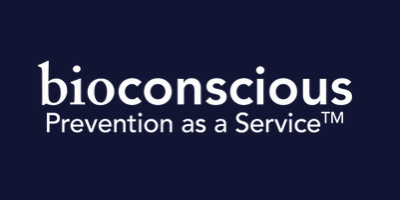Across the healthcare industry, the role of artificial intelligence (AI) in advancing medical care is the subject of ongoing discussions. Given AI’s potential to enhance care, and when considering that the AI healthcare market is expected to soar to $431 billion by 2032, this attention is welcomed1. Whether it’s utilizing AI to fight antibiotic resistance or developing AI-powered ultrasounds to help identify pregnancy risks, modern innovators today, including Microsoft co-founder Bill Gates2, are making big bets on the future of AI in healthcare. While AI’s ability to improve chronic care, specifically diabetes management, stands out as a prime candidate for innovation, many questions remain unanswered.
With an estimated 700 million individuals predicted to be living with diabetes by 2045, the demand for innovative solutions that optimize patient outcomes and streamline healthcare workflows has never been greater. The combination of continuous glucose monitoring (CGM) systems with AI LLM (large language models) predictive modeling will be a progressive force in diabetes patient care, supporting the work of clinicians. AI cannot and will not replace a healthcare professional’s human “touch” or decision-making responsibility. “Guard rails” that require care provider approval of AI-generated recommendations will be vital.
AI should be an important tool in the clinician’s toolkit, analyzing and aiding in understanding CGM data, detecting alarming patterns, and offering personalized insights and recommendations, each of which the clinician should review and approve. Let’s further explore the synergistic relationship between CGMs and AI, examining how their integration is reshaping diabetes treatment and improving both the efficiency and effectiveness of healthcare delivery.
How AI Can Combat CGM Data Overload
While CGM technology has been central to the evolution of diabetes management in providing a comprehensive view of diabetes patient glucose levels throughout the day and night, the abundance of data now being gathered for the patient threatens to overwhelm already stressed clinical staff; the result is in data overload and the potential for suboptimal clinical outcomes. With glucose readings typically generated every one to five minutes, clinicians can become mentally burned out by having to continuously interpret the data and then make informed decisions about the patient’s medication, diet, and lifestyle choices. Similarly, the patient or home caregivers are equally overwhelmed.
AI platforms that integrate seamlessly with CGM technology possess the computational ability to analyze vast datasets and derive actionable insights that can assist the clinician in their decision-making role. Through machine-learning and pattern recognition techniques, AI algorithms can discern patterns in CGM data, identify subtle trends that might be otherwise difficult to detect, and predict glycemic responses to various stimuli, such as food intake, exercise, stress, and medication. Moreover, AI-powered systems can anticipate and alert individuals and healthcare providers to impending glycemic excursions), enabling proactive interventions to prevent hypo- or hyperglycemic events. AI’s data assessment maximizes the value of CGM-generated glucose readings.
Additionally, the integration of GPT 4 Large Language Models (LLM) within these AI platforms is a significant leap forward in automated remote patient management. A GPT 4 LLM gives clinicians access to personalized chart notes tailored to individual diabetes patient profiles, accelerating the documentation process, and ensuring compliance with billing requirements. With nearly half of endocrinologists spending only 17-24 minutes with their patients on average3, these functions create a “virtual assistant” for clinicians, freeing up valuable time for clinicians to focus on patient care and clinical decision-making.
Empowering Clinicians To Harness the Power of AI Assistance in Diabetes Care
Just as AI analyzes CGM data and provides evidence-based recommendations aligned with the latest clinical guidelines, it addresses another serious pain point in current diabetes patient management, which is the generation of chart notes.
One of the most compelling advantages of AI integration in diabetes management is creating more precise and efficient chart notes. By leveraging trained GPT models based on the latest American Diabetes Association (ADA) guidelines, clinicians can receive advanced chart notes that are concise and patient-specific. This streamlines the otherwise time-consuming documentation process for healthcare providers and enhances the accuracy and completeness of patient records, facilitating continuity of care and collaboration among multidisciplinary care teams.
In addition to incorporating the latest ADA clinical guidelines, AI-generated chart notes can be tailored specifically to a diabetes clinician’s practice preferences and patient population, alleviating the burden of documentation while enhancing the quality and timeliness of clinical decision-making. The AI-driven insights can integrate directly with existing electronic health record (EHR) systems, facilitating data-driven care coordination and population health management. The result should be improved healthcare outcomes at scale, achieved with fewer scarce resources.
Forging a Path Towards Personalized and Proactive Diabetes Care
As we navigate the complex landscape of chronic disease management, the convergence between technology and medicine will continue to drive innovation and shape the future of healthcare delivery. By harnessing the power of AI to analyze CGM data, generate actionable insights, and facilitate informed decision-making, we can pave the way towards a brighter and healthier future for the hundreds of millions of individuals living with diabetes.
With the support of decision-makers and funding agencies, we can chart a path towards personalized, proactive, and precision-driven diabetes care that empowers individuals, engages healthcare providers, and transforms lives.


















